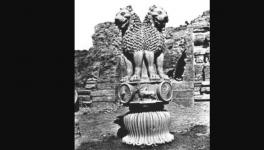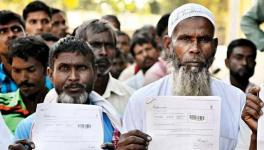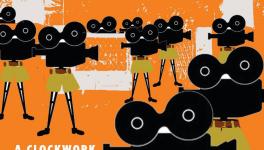Noted Assamese Littérateur and Veteran Journalist Homen Borgohain Passes Away at 88
On May 12, Assam woke up to the sad news of the demise of one of its most beloved and renowned littérateur and author, Homen Borgohain. Days after testing negative for COVID-19, the 88-year-old veteran journalist passed away in Guwahati following a cardiac arrest on Wednesday morning.
As per reports, Borgohain was admitted to the Guwahati Medical College and Hospital on April 24 after he had tested positive for COVID-19. He was released on May 7 as he tested negative and returned home. However, on the morning of May 11, he developed breathing complications after falling down from his bed during his sleep. He was rushed to the hospital where he breathed his last.
Borgohain, who had won the Sahitya Akademi award for his novel, Pita Putra (Father Son) in 1978, had returned the award in 2015 in protest against the “growing religious intolerance” and “fascist tendency" in the country following the killing of a Muslim man in Dadri (Uttar Pradesh) for allegedly storing beef at home, The Telegraph reported.
The former president of Assam’s apex literary body Assam Sahitya Sabha is survived by his wife, renowned author and Sahitya Akademi awardee Nirupama Borgohain and two sons.
Born on December 7, 1932, at Dhakuakhan in undivided Lakhimpur district, the author who was always unflinching in upholding his values, left his job as a magistrate to join journalism. He began his journalism career as an editor for the Assamese weekly Nilachal in 1968. In a career spanning over several decades, he served as the editor of Nagarik and continued to serve as editor-in-chief of Niyomia Barta till his death.
Commenting on the author’s stint in Nilachal, Guwahati-based journalist Prasanta Rajguru, who closely worked with Borgohain in another daily Amar Asom, said, “With that, for the first time, the Assamese public got an anti-establishment paper. That sort of journalism was uncommon then.”
Rajguru added that Borgohain was a staunch critic of the 1975 Emergency. “He would publish blank editorials during the censorship, and once the Emergency was lifted, he exposed a number of events that occurred during the period,” The Indian Express quoted Rajguru as saying.
A prolific writer, Borgohain has to his credit five short story collections, 13 novels, one collection of poems, three autobiographies, 23 collections of different writings, 12 edited books, nine collections of stories for children and a collection of translated stories. His writings displayed what he was, a humanist to the core and a progressive liberal.
According to Rajguru, Borgohain did not shy away from expressing political opinions which many would have considered unpopular. For example, he was critical of the Assam Agitation, the six-year-long anti-“foreigner” mass movement of the early 1980s.
The author also translated Myron Weiner’s Sons of the Soil to Assamese in the early 1980s, parts of which were published in Nagorik, a weekly edited by him. Rajguru said, “Many agitators read this, and it inspired the movement, which was initially directed against all non-Assamese. His writings stressed that it should not be against all non-Assamese who have settled in Assam but those who had entered ‘illegally’. He often questioned why immigrant people who came before 1971 were being antagonised in Assam.”
Borgohain’s last rites were performed on Wednesday afternoon with full state honours at Guwahati’s Nabagraha crematorium.
Get the latest reports & analysis with people's perspective on Protests, movements & deep analytical videos, discussions of the current affairs in your Telegram app. Subscribe to NewsClick's Telegram channel & get Real-Time updates on stories, as they get published on our website.




















